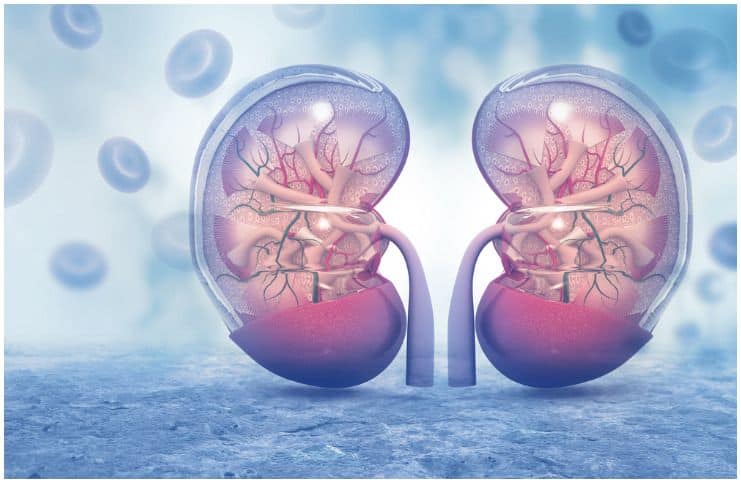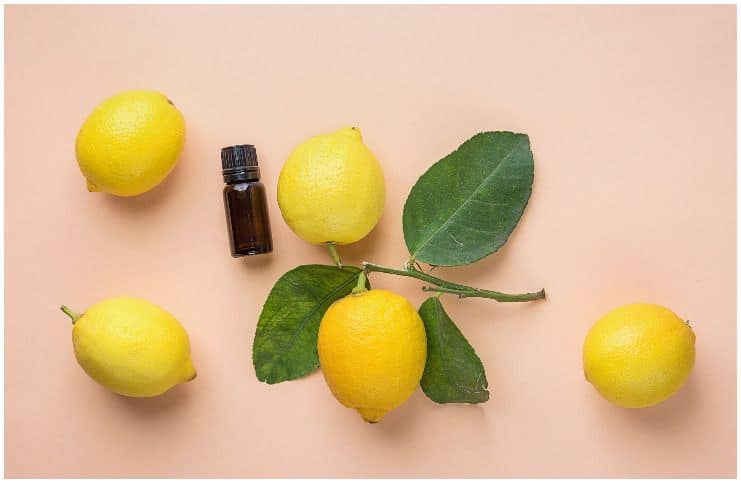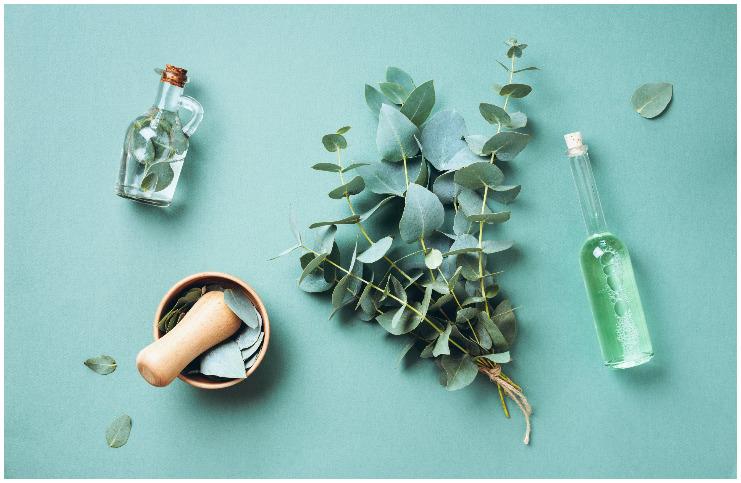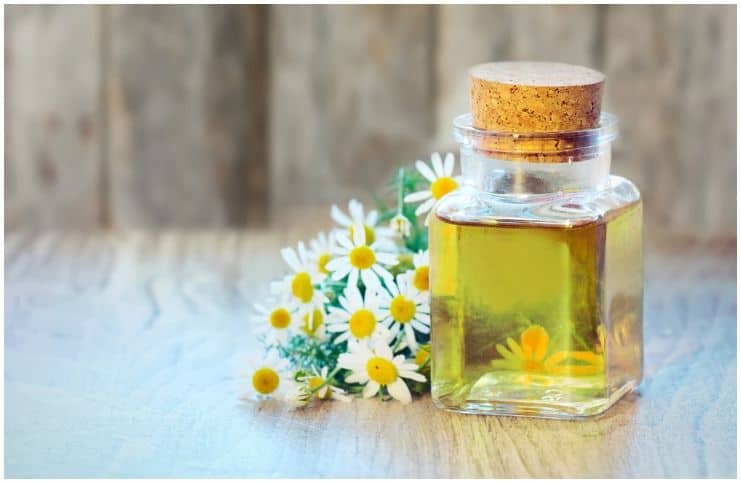Kidney stones are small rocks that develop in the kidney. They form when certain chemicals become concentrated enough in the urine to form crystals.
Kidney stones affect about 1 in 11 individuals in the US.
There are 2 forms of stones that may be affected by the diet – calcium stones and uric acid stones (these are more common in men).
Sometimes, a kidney stone can lodge in a specific area of your kidney and cause discomfort. Symptoms include:
- hematuria or passage of blood in the urine;
- vomiting and nausea;
- pain while urinating;
- lower back pain;
- abnormal urine color.
Here is a list of essential oils for kidney stones pain relief:
1. Lemon
Ayurvedic medicine has been using to treat numerous health conditions. It is also used for cleansing the body and decrease exhaustion and has potent anti-inflammatory properties.
You can apply it topically, diluted in a bowl of water. It can also be taken internally in small doses.
2. Fennel
Used by the Egyptians and in Chinese traditional medicine, fennel is best known as a strong ingredient for good digestive health, helping relieve constipation and clearing the bowels.
You can use it topically on a skin area close to your affected kidney for pain relief. It shouldn’t be used in large quantities as this can have adverse effects. Furthermore, fennel should be avoided if you are epileptic or pregnant.
3. Eucalyptus
Obtained from fresh leaves of the evergreen eucalyptus tree, it has been used for millennia by all different cultures for its powerful properties to reduce inflammation and pain, stimulate immunity, improve respiratory circulation, and provide antioxidant protection.
You can combine eucalyptus with a carrier oil and apply topically.
4. Helichrysum
Obtained from the flowers of the helichrysum plant (Helichrysum italicum), it has many remarkable medicinal properties. It can decrease kidney stone risk through the detoxification of the kidneys and liver.
It is for external use only. You can apply it topically twice a day.
5. German Chamomile
German chamomile is frequently referred to as the European ginseng because of its potent medicinal properties. It has a soothing effect and is excellent for all types of external or internal inflammation.
More importantly, it is an extremely useful remedy, particularly if you have sensitive skin because it helps to reduce redness.
It is recommended to be avoided in pregnancy.
6. Lemongrass
Made through the process of steam distillation of dried lemongrass plant (botanical name – Cymbopogon), it is unique due to its antibacterial, antimicrobial, and anti-fungal properties.
Apply it topically diluted with a carrier oil on the affected area.
7. Rosemary
This amazing natural remedy has been broadly used for centuries for different purposes. It can relieve pain and has potent diuretic properties which in turn help to remove uric acids that increase inflammation and may lead to kidney stones creation.
Massage the affected area with rosemary. It should not be used internally.
8. Clary Sage
Produced by the steam distillation of Salvia sclarea plant, it can reduce inflammation in the body and all symptoms of anxiety disorders.
It can be used topically on painful areas and internally (it aides as a flavor for food).
9. Wintergreen
Made from a shrubby evergreen plant with the scientific name – Gaultheria procumbens, has a refreshing minty aroma and is known for its stimulating and invigorating properties.
It is used only externally. Apply it daily to the affected area of the body to relieve pain.
10. Basil
Produced from the herb Ocimum basilicum, it is used as a digestive tonic and provides relief from pain. However, it is usually used for muscular, respiratory, and joint support. It can be used both internally and topically.
Steps to prevent kidney stones
Reduce caffeine and decaffeinated beverages. They cause an increased concentration of oxalates in the urine. In addition, high caffeine consumption can cause a range of health problems, including insomnia and high blood pressure.
Limit alcohol consumption. Even though alcohol drinks may initially increase urine output, ultimately they deplete your body of water.
Reduce sodium intake. Do not use added salt at the table or in cooking. Instead, use spices and herbs to flavor your foods. Aim for less than 2,300 milligrams of sodium daily and read labels to better avoid high sodium foods.
Be moderate with high oxalate foods. Nevertheless, many vegetables that have high oxalate content provide many health benefits and are delicious. Tip – boiling vegetables can reduce their content of oxalate to approximately 90 percent.
Drink plenty of liquids. Eating fruits and vegetables is also beneficial for their water content. Moreover, occasionally when you drink water squeeze half a lemon into your glass to get you some citric acid. When you have a food craving, drink a glass of water first. The color of your urine is an accurate sign of your hydration level. It should appear light yellow in color.
Note – if you practice intense physical exercise frequently or live in a dry, hot climate, you may need to increase your fluids and sodium intake.
Avoid soft drinks. Some studies concluded that dark colas contain phosphoric acid (E338) and may raise your risk for kidney stones. Instead, stick to plain water.
Avoid artificial sweeteners. They have a potent acid-forming effect on your blood which impairs a normal kidney function if consumed frequently.
Lose weight. Being overweight or having a high BMI has been established to increase the chance of getting kidney stones.
Supplements. Limit excessive use of calcium and vitamin C supplements.
Reduce or completely avoid animal products. Eating too much animal protein, like red meat, dairy products, and eggs, increases the level of uric acid which in return leads to kidney stones formation.
Don’t use unnecessary prescription drugs. Certain medicines can form kidney stones.
Eat high-fiber food. Many high-fiber foods contain phytate, that prevents crystallization of calcium salts, both phosphate and oxalate. Fiber can help control your blood sugar levels and increases stool bulk.
References http://www.health.harvard.edu/diseases-and-conditions/ https://www.ncbi.nlm.nih.gov/pubmedhealth/PMHT0022762/ https://www.sciencedaily.com/releases/2016/08/160808115447.htm https://health.ucsd.edu/specialties/surgery/urology/areas-expertise/







